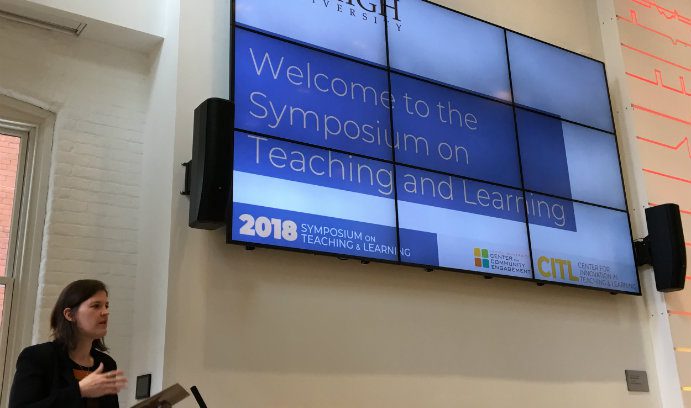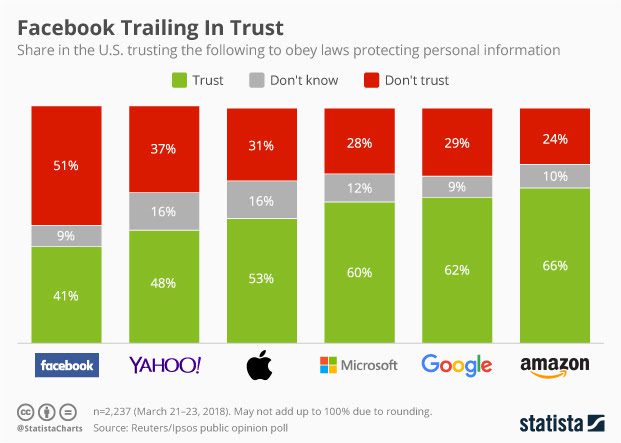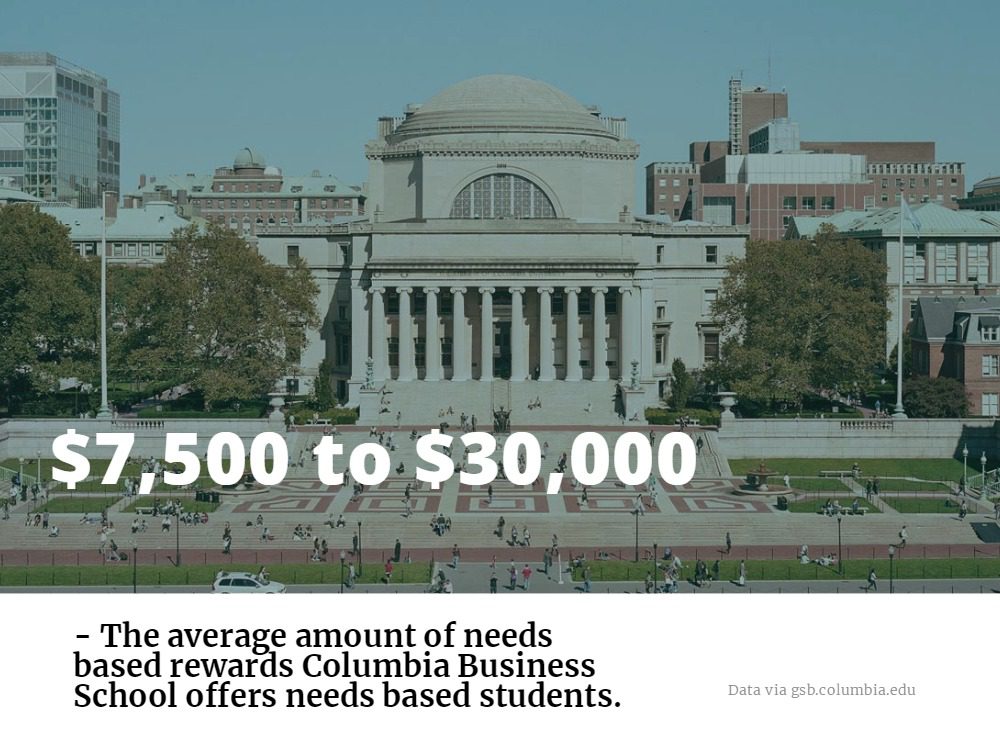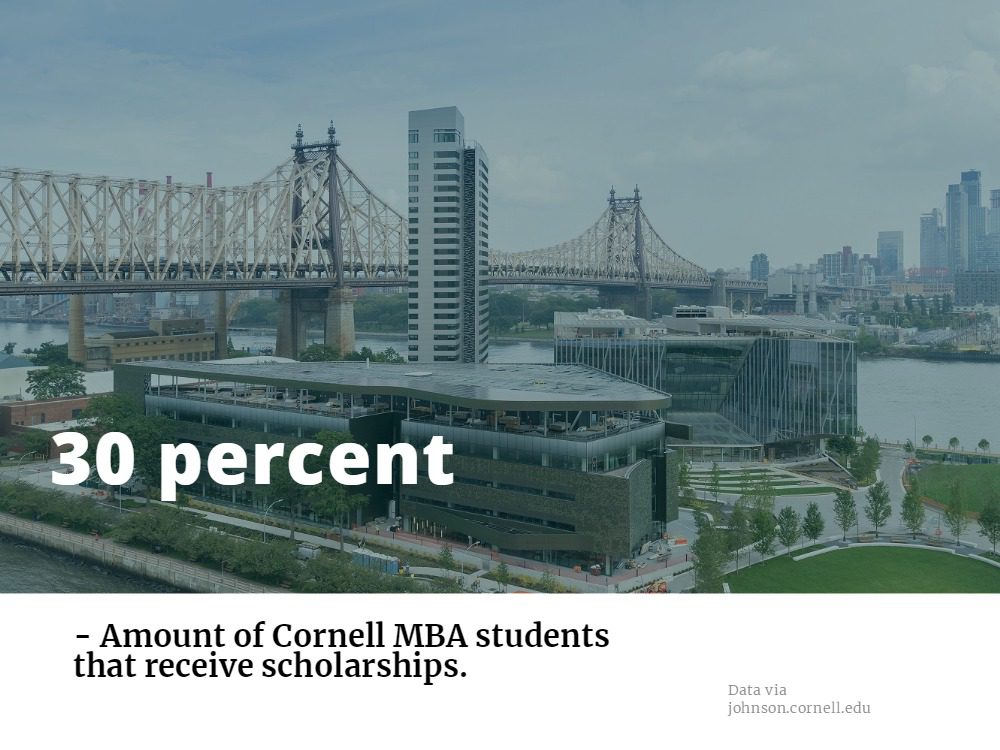How a Rutgers Alum Single-Handedly Saved the U.S. Treasury Market After 9/11 – New York News

Let’s explore some of the most interesting stories that have emerged from New York City business schools this week.
9-11 and The Almost Meltdown of the U.S. Treasury Market – Rutgers Business School Blog
Rutgers Business School recently published the incredibly unique and singular story of how Art Certosimo, RBS alum and Senior Executive VP of Bank of New York-Mellon heading the Global Markets Group, almost single-handedly saved the US Treasury market in the immediate aftermath of 9/11.
After Art extricated his team to a temporary base in New Jersey on the 12th, Art quickly understood that he needed to procure a “massive fiber-optic cable to the data center in New York City” or risk a meltdown of the entire U.S. Treasury Market and “the possible demise of the credibility of U.S. sovereign debt.”
“Art and Tom Renyi, CEO of BNY (another Rutgers graduate, and dear friend of RBS and REMBA) had a conference with Colin Powell, Donald Rumsfeld, Dick Cheney and a host of 4- and 5-star generals, and explained to them that this was ‘priority #1’ for that day, 9-12.”
You can read the full account of the event here.
Michael Cline, Founder of Fandango, Shares the Keys to Entrepreneurship – Gabelli Connect
Fandango, Exult, Xchanging, Accretive Health, and Accolade founder Michael Cline recently took part in the Gabelli School of Business Speaker Series at the school’s Lincoln Center campus to share his insights on the “major milestones that occur over the course of starting a new venture.”
Cline explained that the entrepreneurial journey “looks more like an inverted bell curve, swooping down for quite some time before slowly creeping back up until the idea becomes something the creator is proud of creating.”
Gabelli undergrads reportedly got a lot of Cline’s lecture. Undergrad Zach Zimmerman, BS ’19 writes, “It was great to see Mr. Cline’s perspective as a serial entrepreneur and understand the emotional roller coaster behind creating anything great. When you get in a ‘swamp of despair,’ which happens with any great project, it is important to stay focused, driven, and persistent.”
Get the full scoop on Cline’s talk here.
Sharing Ideas, Inspiring Change – Lehigh College of Business and Economics Blog
The Lehigh University College of Business and Economics recently hosted its two-day 2018 Symposium on Teaching and Learning in which staff and students presented new interdisciplinary research techniques and classroom strategies.
Just a few examples include “journalism students using drones to tell stories; biology students exploring the body in virtual reality; urban studies students using outdoor spaces as labs for testing ideas to improve city life; and students in organic chemistry making tutorial videos for their peers.”
Sarah Stanlick, Lehigh professor of practice in sociology and anthropology and director of the CCE, hoped that the symposium opened people’s eyes to “some really interesting, innovative pedagogues, the fact that research can be really impactful outside of the university, that there are partnerships and ethics and humility that need to be brought into these lifelong learning collaborations and that there is power in higher ed to be world-changing.”

Lehigh professor Sarah Stanlick speaks at the recent 2018 Symposium on Teaching and Learning / Photo via lehigh.edu
You can read more about the symposium here.
What They’re Saying: The Facebook Fallout

It seems puzzling to say a company that is worth nearly half a trillion dollars is venturing somewhere near zero degrees Kelvin, but if you were only reading headlines this week you’d get the sense that Facebook isn’t looking so hot.
Since the break of the Cambridge Analytica scandal, the tech giant lost an estimated $100 billion USD in value, and its beleaguered founder Mark Zuckerberg lost an estimated $14 billion of his own worth. Fortunately for him, according to CNN, he’s still worth over $60 billion so he can easily afford more mayonnaise and butter sandwiches.
But the fallout is more than monetary. Trust in the social media company is at a critical low point, according to Statista data.

Janina Conboye at the Financial Times recently asked how the company may go about repairing its own image in “The MBA view: can Facebook fix its reputation?,” speaking with numerous business school faculty members, including London Business School‘s Jill Schlechtweg, who plainly says, “It is worth wondering whether Facebook can regain credibility at all. Arguably Mark Zuckerberg has evaded responsibility for the social costs of social media addiction, the proliferation of fake news, and now leaks of personal data for political ends.”
Check out how other business schools and industry experts are reacting the ongoing Facebook story below.
What @facebook knows about you apparently includes data about phone calls and messages. The revelation could make Facebook’s huge data scandal hurt more than ever. https://t.co/jActrbEB5i
— MIT Tech Review (@techreview) March 27, 2018
PSA: “Harvard Business School Prof. Shoshana Zuboff calls it “surveillance capitalism.” And as creepy as Facebook is turning out to be, the entire industry is far creepier. It has existed in secret far too long…” https://t.co/vSPlAyWnzu
— Mitchell Schneider (@Mitski) March 27, 2018
What Cambridge Analytica is accused of doing, Facebook and Silicon Valley giants like Google do every day, indeed, every minute we’re logged on. – https://t.co/8O9730vddo
— Mark Schaefer (@markwschaefer) March 29, 2018
In the wake of the Cambridge Analytica scandal, Apple is making their position clear on privacy. https://t.co/OLIl5ihtby
— FOX MBA & MS (@FoxMBA) March 28, 2018
.@profgalloway weighs in on #Facebook‘s handling of the Cambridge Analytica scandal via @barronsonline https://t.co/6zWqfAa3nk
— NYU Stern (@NYUStern) March 28, 2018
How NYC Business Schools Help the Underprivileged Applicants

Pursuing an MBA is a shrewd move for anyone looking to earn a competitive salary right out of school. Though attending a renowned school can up the price tag of earning an MBA, it may also increase the overall return on investment. According to an article in U.S. News & World Report, “… graduates of top-tier business schools usually earn higher starting salaries than their peers who went to lower-ranked schools.”
It’s not jut the opportunity to have a lucrative job right out of school that makes a high starting salary appealing. An enviable starting salary could mean more earning potential down the line. However, a top-tier school may seem out of reach for low-income applicants. After all, how can you enjoy the return on investment if you can’t afford to invest in the first place?
Luckily, many prestigious business schools offer resources for students from different socioeconomic backgrounds. Below, we’ve outlined the resources available for low-income applicants at five of New York City metro’s best business schools.
How NYC Business Schools Help the Underprivileged
Columbia Business School
Columbia Business School offers need-based awards to many students, which may result in anywhere from $7,500 to $30,000 in tuition support. Nearly half of applicants receive need-based scholarships, which are automatically renewed at the start of the second year. Columbia students can also apply for private and federal loans. To create incentive for students to choose careers in public and nonprofit fields, the school offers a Loan Assistance Program for students who utilize their education to pursue these paths. Students are eligible to apply for this program for up to five years after graduation. Depending on the extent of students’ debt, they may receive anywhere from $2,000 to $10,000 of annual support. Columbia students may also receive merit-based scholarships, such as the Columbia Fellows Program, which may cover full or partial tuition and is granted to applicants with an outstanding track record in leadership and creativity.

Stern School of Business—New York University
NYU’s Stern School of Business offers a variety of scholarships for high-achieving applicants. According to the school’s website, nearly a quarter of students who enter the full-time MBA program receive a merit-based scholarship. There are also additional merit-based opportunities for students coming from different backgrounds and perspectives. Scholarships like the Advancing Women in Business Scholarship and the Forte Fellowship are particularly geared toward female-identifying students, to support women in business. The ROMBA Fellowship aims to help LGBTQ students succeed in business education. The Consortium Fellowship exists to increase the number of minorities such as Hispanic Americans, Native Americans, and African Americans in business school as well.
Gabelli School of Business—Fordham University
At the Fordham University Gabelli School of Business, graduate students may be eligible for federal financial aid, merit scholarships, or a variety of graduate assistantships. Awards based on academic excellence range from $10,000 to full tuition. Exceptional students may be eligible for awards like the Dean’s Premier Scholarship, which includes a $20,000 living stipend, and may include a stipend toward one of Fordham’s global programs. Students can also apply for a plethora of need/merit-based scholarships, like the Hitachi Diversity and Inclusion Scholarship, which seeks to help underrepresented minorities finance their education.
Rutgers Business School, Newark and New Brunswick
The Financial Times ranked Rutgers Business School among the top 50 MBA programs for return on investment in 2017, citing a 130 percent increase in salary for students within three years of completing their degree. Moreover, the school’s website states that, “More than 80 percent of Rutgers students receive some form of financial aid.” Moreover, at $31,011 per year (not including fees), this program is far more affordable than many other prestigious schools. Students can apply for federal or private loans, grants, and an array of scholarships. In addition to the awards offered by the Rutgers Business School Graduate Scholarship Fund, the Rutgers website lists 30 fellowships, scholarships, and partnerships. The Ralph Bunche Fellowships, for example, provide tuition remission, and a $15,000 living stipend to minority students from disadvantaged socioeconomic backgrounds.
SC Johnson Graduate School of Management—Cornell University
Around 30 percent of entering the SC Johnson Graduate School of Management students receive some level of scholarship support. Scholarships like the National Society of Hispanic MBA’s (NSHMBA) and the TOIGO Fellowship specifically seek to help underrepresented minorities. The MD MBA Dual Degree Program and Lee Family Scholarship supports students on the rigorous path to receive their MD/MBA. Additionally, Cornell’s Park Leadership Fellows Program awards full tuition to up to 25 MBA applicants annually. The award is granted based on personal and professional achievements, academic performance, social contributions, and leadership. Students can also apply for federal and private loans.

Gear Up For These January MBA Deadlines

The next round of MBA admissions is swiftly approaching, with the eve of 2018 almost here. Time to mark those calendars!
New York City
The NYU Stern School of Business, Columbia Business School, and Rutgers Business School, Newark/New Brunswick are the big headliners when it comes to deadlines in the New York City metro in January.
The Forham University Gabelli School of Business, and the Syracuse University Whitman School of Management Online MBA program also have deadlines in the first weeks of the new year. Click here for more information on upcoming New York City metro deadlines.

The third round for application deadlines to Cornell’s Tech MBA on its new Roosevelt Island campus arrives January 10, 2018.
Los Angeles
The biggest Los Angeles metro business school institutions all have a slew of deadlines ready to pass within the first weeks of the new year, including the UCLA Anderson School of Management‘s full-time MBA, USC Marshall‘s part-time program, as well as the Claremont University Peter F. Drucker and Masatoshi Ito Graduate School of Management‘s part-time MBA.
Take a look at the coming deadlines in the Los Angeles metro here.
Toronto
Two Toronto metro schools have deadlines in early January, with the Ivey Business School full-time, Accelerated, and EMBA deadlines all falling on January 8, 2018. The second round deadline to the University of Toronto Rotman School of Management‘s full-time MBA also falls on January 8.
Take a look at the coming deadlines in the Toronto metro here.
Chicago
Two of the most prominent business schools in the entire Chicago metro—Chicago Booth and Northwestern Kellogg—feature a bevy of full-time, part-time, and Evening MBA deadlines before January 10. As well, the Quinlan School of Business at Loyola University’s full-time MBA for its annual spring intake arrives on January 15, 2018.
Just outside of the city, on the near border of Indiana, the Notre Dame Mendoza College of Business’ second round deadline for its full-time MBA program is set for January 9.
Get familiar with the coming deadlines in the Chicago metro here.

The second round of deadlines for the Northwestern Kellogg part-time and full-time MBA programs arrives on Jan. 10, 2018.
Boston
In Boston, the heart of America’s higher education, every January is a major month for several of the country’s most prominent MBA programs. Indeed, Harvard Business School and MIT Sloan, as well as the Questrom School of Business at Boston University, the Carroll School of Management at Boston College, and Northeastern University’s D’Amore-McKim School of Business all have MBA deadlines right at the beginning of the new year for various MBA programs.
Take a look at the coming deadlines in the Boston metro here.
For updated deadline information in Philadelphia, Washington DC, Baltimore, Atlanta, Dallas, Houston, Denver, San Francisco, San Diego, Seattle, and London, click here.
Gain a Global Edge with These Philadelphia International Business MBAs

Every day, it becomes easier and easier to make connections across the world, building a global network of business and resources that can help to benefit the world. Due to an increasingly global economy, possessing a deep knowledge and understanding of the way global markets work can be a crucial part of building a business career. There is almost no limit to the types of opportunities an education in global business will provide: from working in the fields of international trade, global business operations or planning or industrial development, and being employed by international agencies, non-profit organizations, governmental, or both public and private corporations.
According to Michigan State program globalEDGE, “demand continues to grow for individuals who understand the global context of business: from the logistics of international trade and cross-border investments to the cultural and ethical issues that are imbued in the practice of business around the world. By studying international business, you will learn about world cultures and societies, and be challenged to approach issues from different perspectives.”
In choosing to study international business in the Philadelphia metro area, aspiring business leaders can center themselves in a growing market at the center of United States history and global trade. We’ve rounded up some of the area’s top MBA programs that offer a concentration in international business, allowing students to gain specific knowledge and skills to make an impact in the global economy.
Fox School of Business – Temple University
Consistently rated one of the top business schools in the country, the Fox School of Business at Temple University offers students a number of opportunities to gain skills and earn a degree in the field of global business. The Global MBA program, based in Philadelphia, is taught by world renowned faculty and is designed to provide an experiential education in international economics, with live consulting, internship and professional development opportunities. Additional programs like the MBA from Temple University Japan in Tokyo and the EMBA at Temple University Paris offer further opportunities for students to gain a hands-on global experience with a strong business background.
Lerner College – University of Delaware
The MBA at University of Delaware’s Lerner College of Business gives students the opportunity to concentrate in international business, providing the solid business background they will need to effectively conduct business in a global environment. In addition to U.S. citizens looking to expand their knowledge in international business and help their organizations to expand overseas, many students in the Lerner MBA program are international, returning home with a deep understanding of U.S. customs and the ability to navigate business across borders.
YOU MAY ALSO LIKE – Searching for the World’s Top MBA Recruiters: Comcast
Rutgers School of Business, Camden
Students interested in concentrating in International Business and Operations can do so at the Rutgers School of Business by pursuing a number of electives in the field. Students can take a number of electives in the fields of International Business and Operations Management to complete the concentration, including courses like: International Management, Global Operations Information Technology, Global Marketing Strategy, and International Study Abroad in countries such as South Africa, France, and Brazil.
Smeal College of Business – Penn State
While the Smeal College of Business at Penn State does not directly offer a concentration or major in international business, it is an available as an option. At Smeal, options constitute a briefer but still targeted study within a particular area, allowing students to gain a deeper education in Global Business while still receiving the more general education of an MBA.
The Wharton School – University of Pennsylvania
The Wharton School at UPenn, well-known as one of the top business schools in the world, provides students the opportunity to pursue a joint MBA/MA in International Studies. The MBA/MA Lauder Joint-Degree provides students a range of resources and educational experiences in global business, such as the Global Knowledge Lab, which involves students working together as a team to produce a thorough research paper/master’s thesis. The program also includes two short global immersions and an optional ten-day trek called Culture Quest, organized completely by students in the program. The six areas of concentration students may choose to specialize in include: Africa, East and Southeast Asia, Europe, Latin America, South Asia, the Middle East, and North Africa.
Hot Jobs for MBAs: Becoming a Pricing Analyst

MBA graduates looking to apply their skills to a fast-growing and high-paying career may be interested in pursuing a role in Pricing Analysis. Named among the 100 best jobs in America by CNN, working as a Pricing Analyst is a perfect way for an MBA graduate to make use of their strong education combining skills in marketing, finance, and analytics.
With a predicted 10-year job growth of 41.2 percent and roughly 280,000 total jobs available, business students who think they might be interested this fast-growing career can start preparing while still in school through specialized study in marketing or finance. Armed with the special skills in data analysis in addition to the strong business background of an MBA, students looking to enter the field after graduation will have a competitive advantage as they begin their career.
We’ve rounded up the most important things to know about a career in Pricing Analysis to help you decide if it’s the right role for you.
What is a Pricing Analyst?
A company’s pricing analyst is responsible for figuring out the appropriate price for a business to place on a product or service. Using a variety of data and different metrics, the Pricing Analyst will determine the perfect price that will both appeal to consumers and produce an appropriate profit for the company.
Pricing Analysts must be able to track marketplace trends and implement a strategy that will benefit both the company and consumer. Someone in this role must be able to effectively communicate to a number of other departments such as supply chain, sales, marketing, finance, and be able to work with these groups in making pricing recommendations and decisions based on their analysis.
Pricing Analysts may be needed at wide variety of companies and organizations, ranging from construction companies, colleges and universities, banks and financial institutions, pharmaceutical companies, and more.
What Skills Does a Pricing Analyst Need?
Those who succeed in the role of Pricing Analyst typically have strong skills in mathematics, analytical thinking and problem solving. It is also important that Pricing Analysts are able to effectively communicate, as they are often required to explain their research and analysis to others in order to make important decisions.
Other skills employers may seek in a Pricing Analyst may be:
- An interest and skill working with numbers and data.
- Being a detail oriented and proactive worker.
- Have the ability to work with minimal supervision.
- Experience in back-office and billing systems and database management programs,
Pricing Analyst Salary
Pricing Analyst salaries, according to PayScale, may vary according to a number of factors, such as education, terms of the job, and type of employer. On average, Pricing Analysts can earn anywhere from $52,000-61,000 depending on their level of experience. In cities like New York and Boston, that number is slightly higher.
A recent study from Deloitte found even more impressive figures: 62 percent of respondents in a survey of pricing professionals reported salaries of greater than $100,000 and 83 percent of respondents said they were also eligible for an annual bonus.
EVEN MORE MBA JOBS: Verizon is on the Lookout for MBA Students and Grads
MBAs For Pricing Analysts
While most MBA programs do not offer a direct concentration in pricing analysis, a number of programs still provide specialized pricing education through other departments, like finance and business analytics. Below are just a few examples of pricing-related courses available at some of the top MBA programs in the country:
-
Scheller College of Business – Georgia Institute of Technology
The Scheller College of Business offers a course in pricing strategy as part of their Business Analytics MBA concentration. The course, marketing Analytics and Pricing Strategy, helps students gain skills in making effective pricing decisions through the understanding of important economic and analytical concepts associated with customer behavior and competition.
-
The Wharton School – University of Pennsylvania
FNCE717, or Financial Derivatives, at the Wharton School focuses students on making strategic corporate decisions, particularly when it comes to pricing. Students will learn several different approaches to pricing and how to apply such skills for investment and risk-management.
-
Rutgers School of Business, Newark and New Brunswick
The MBA program at Rutgers’ Newark and New Brunswick location offers a class in Supply Chain Pricing Strategy. The course recognizes the importance of pricing in driving profits and the extreme negative impact poor pricing decisions can have. Students will learn how to approach pricing from both a strategic and tactical level and be able to apply it to a number of fields and industries.
Do You Actually Need an MBA for the Job?
While an MBA is not necessarily a requirement of all Pricing Analyst jobs, it is by far the most common degree held by those in this role. According to the aforementioned Deloitte survey, 43 percent of respondents held MBA degrees, while just 26 percent—the next highest percentage—held undergraduate degrees in business. Earning an MBA and demonstrating specialized coursework in pricing will give those in the field a competitive edge and open the door to higher level management positions in the field.
